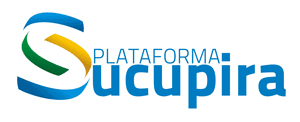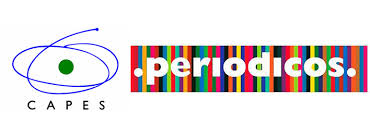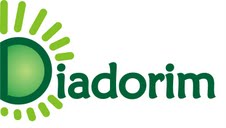AN OPTIMIZATION OF A SOLAR SAILCRAFT TRAJECTORY IN AN EARTH-MARS TRANSFER CONSIDERING THE ATTITUDE DYNAMICS
DOI:
https://doi.org/10.26512/ripe.v2i20.15000Resumo
The goal of this work was to optimize the trajectory of a solar sailcraft in an Earth-Mars transfer. Solar sailcraft is propulsion system with great interest in space engineering, since it uses solar radiation to propulsion. So there is no need for propellant to be used, thus it can remains active throughout the entire transfer maneuver. This type of propulsion system opens the possibility to reduce the cost of exploration missions in the solar system. In its simplest configuration, a Flat Solar Sail (FSS) consists of a large and thin structure generally composed by a film fixed to flexible rods. The performance of these vehicles depends largely on the sails attitude relative to the Sun. Using a FSS as propulsion, an Earth-Mars transfer optimization problem was tackled by the GEO real algorithm (Generalized Extremal Optimization with real codification). This algorithm is an Evolutionary Algorithm (AE) based on the theory of Self-Organized Criticality. The FSS was able to perform up to 10 maneuvers
until reach Mars. Two angles values are necessary to characterize the FSS film normal vector. Therefore, the GEO real algorithm had to optimize up to 20 design variables in order to minimize the transfer time from Earth to Mars. Once the optimized control law and the FSS trajectory were obtained, the attitude equations of motion were considered. Finally, the impact of this consideration in the FSS control law performance was evaluated. Keywords: Solar sailcraft, Trajectory optimization, Evolutionary algorithm, Attitude dynamics, Generalized Extremal Optimization.
Downloads
Referências
Clarck, D.E, Mannhold, R., Kubinyi, H. & Timmerman, H. Evolutionary algorithms in molecular design. Weinheim: Whiley-VCH, 2000.
Dachwald, B. Low-Thrust Trajectory Optimization and Interplanetary Mission Analysis Using Evolutionary Neurocontrol. Doctor Tesis - Universität der Bundeswehr München Fakultät für Luft- und Raumfahrttechnik Institut für Raumfahrttechnik, 2004.
Dasgupta, D. & Michalewicz, Z. (Editores), Evolutionary Algorithms in: Engineering applications. Berlin, Heidelberg, New York: Springer, 2001.
De Sousa, F.L., Ramos, F.M., Paglione, P. & Girardi, R.M. New Stochastic Algorithm for Design Optimization, AIAA journal, Vol. 41, Number 9, pp. 1808-1818, 2003 (ISNN 0001-1452).
Eiben, A. E. & Smith, J.E. Introduction to evolutionary computing. Berlin: Springer, 2003.
Galski, R. L. Desenvolvimento de versões aprimoradas híbridas, paralela e multiobjetivo do método da otimização extrema generalizada e sua aplicação no projeto de sistemas espaciais. 2006-09-22. 279 p. (INPE-14795-TDI/1238). Doctor Tesis - Instituto Nacional de Pesquisas Espaciais, São José dos Campos. 2006.
Mainenti-Lopes, I., 2008, “Satellite Attitude Control of Rigid-Flexible Satellite Using the Generalized Extremal Optimization with a Multi-Objective Approach (in portuguese)”, Master Thesis, Nacional Institute for Space Research (INPE).
Mainenti-Lopes, I. 2013. An approach for multi-objective optimization solar sail trajectories. Doctor thesis (in portuguese), INPE, São José dos Campos.
Mainenti-Lopes, I., Souza, L . C . G ., De Sousa F . L . Application of Generalized Extremal Optimization (GEO) Technique to Design the Orbit Transfer Solar Sail Control System. Engineering Optimization 2014. CRC Press 2014. Pages 219”“224. Print ISBN: 978-1-138-02725-1. eBook ISBN: 978-1-315-73210-7. DOI: 10.1201/b17488-41.
Mainenti-Lopes, I., Souza, L . C . G ., De Sousa F . L . 2015 A multi-objective optimization of a solar sailcraft trajectory in an Earth-Mars transfer using an evolutionary algorithm In: CILAMCE2015 - XXXVI Ibero-Latin American Congress on Computational Methods in Engineering, 2015, Rio de Janeiro.
Wie, B., Murph, D., 2007. Solar-Sail Attitude Control Design for a Sail Flight Validation Mission. JOURNAL OF SPACECRAFT AND ROCKETS Vol. 44, No. 4, July”“August 2007 DOI: 10.2514/1.22996
Downloads
Publicado
Como Citar
Edição
Seção
Licença
Autores que publicam nesta revista concordam com os seguintes termos:
Autores mantém os direitos autorais e concedem à revista o direito de primeira publicação, sendo o trabalho simultaneamente licenciado sob a Creative Commons Attribution License o que permite o compartilhamento do trabalho com reconhecimento da autoria do trabalho e publicação inicial nesta revista.
Autores têm autorização para assumir contratos adicionais separadamente, para distribuição não-exclusiva da versão do trabalho publicada nesta revista (ex: publicar em repositório institucional ou como capítulo de livro), com reconhecimento de autoria e publicação inicial nesta revista.
Autores têm permissão e são estimulados a publicar e distribuir seu trabalho online (ex: em repositórios institucionais ou na sua página pessoal) a qualquer ponto antes ou durante o processo editorial, já que isso pode gerar alterações produtivas, bem como aumentar o impacto e a citação do trabalho publicado.









